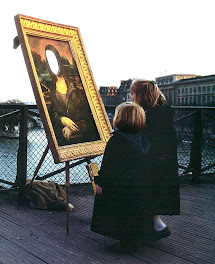Estados Unidos por su tamaño y riqueza es la nación más poderosa del mundo en muchos sentidos, pero ¿en dónde empiezan las tendencias que invadirán a ese país y después a todo el globo? Especialmente en un Estado: California.
Le Nouvel Observateur titula su reportaje central en su edición del 19 de agosto como un "viaje al país del futuro": California.
"Aquí es donde todo empezó. La computadora personal, el mundo digital, el cine como gran espectaculo, el peace and love, la cultura gay, el bodybuilding, el new age, la moda de la comida natural, la ecología radical, el culto al yo... pero California es también el origen de revolución anti fiscal, la pobreza endémica y los guettos para ricos, los apagones de electricidad gigantes..." Además aquí surgió el internet, el fenómeno Arnold Swarzenegger, la ciencia ficción cyberpunk de William Gibson, el budismo americano, el body piercing urbano, el congelamiento de ovulos y de esperma, la moda occidental por el yoga y el vegetarianismo...
Virgina Postrel cuenta en el NYT como Estados Unidos también está pasando de ser una sociedad matealista a una inmaterial.
"We spend too much of our income on restaurant meals, entertainment, travel and health care and not enough on refrigerators, ball bearings, blue jeans and cars. Manufacturing employment is sluggish because of rising productivity - making more with fewer people - and foreign competition. But that's not the whole story, especially over the long term. Production is changing, but so is consumption. As incomes go up, Americans spend a greater proportion on intangibles and relatively less on goods. One result is more new jobs in hotels, health clubs and hospitals, and fewer in factories. In 1959, Americans spent about 40 percent of their incomes on services, compared with 58 percent in 2000. That figure understates the trend, because in many cases goods and services come bundled together... Another way to look at the same trend: In 2000, we spent 41 cents of each food dollar on restaurant meals, up from only 29 cents as recently as 1987. Restaurant meals have changed, too. More and more of their value comes not from the nutrition and dishwashing services - function - but from the experience the restaurant provides. We don't go out to eat just to avoid cooking. We go to enjoy different cuisines in pleasant environments. For successful restaurants, aesthetics is no longer an afterthought. Customers are paying for memories, not just fuel. What's true for restaurants is true across the economy. New economic value increasingly comes from experiences.
... But in fact, states like Florida and Nevada, whose economies produce experiences, are booming. States like Ohio and Michigan, whose economies produce stuff, are hurting. The shift toward intangibles creates geographic winners and losers, redistributing economic and political clout. Over the last eight years, the demographer Peter Francese reports, "people have been moving out of the Northeast and Midwest at a net rate of just over 30,000 a month." In the July/August issue of American Demographics magazine, he documents the story of "young people pulling up stakes in the Northeast and Midwest and dispersing to better jobs and more affordable places to live, where the weather often happens to be a lot better."
Igual sucede en México, donde muchos capitalinos están dejando el inseguro y problemático DF para irse a Querétaro, Morelia y Cancún. Igualmente muchos están dejando el catolicismo y están entrando a movimientos carismáticos evangelistas o volviendo adeptos a cultos tan dispares como la wicca, el islam y el budismo. Todo por que les dan experiencias emocionales más fuertes que ir a iglesias donde los sacerdotes condenan a las madres solteras, a los divorciados, los gays y los que usan anticonceptivos.
La gente irá donde se sienta bienvenida, y ese ha sido el gran éxito de Estados Unidos. Ojalá los que gobiernan el DF o la Iglesia Católica se dieran cuenta de ello.
Suscribirse a:
Comentarios de la entrada (Atom)



No hay comentarios.:
Publicar un comentario